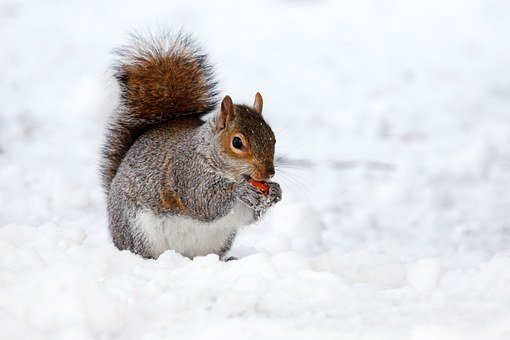Report by Hima Sutha
In living organisms, gut microbes are the microorganisms that live in the gut (a passage like an organ that starts from the mouth to the anus).
Hibernation is a state a few animals go through during harsh weather conditions (winter) to minimise their body activity by reducing their body temperature, breathing, and metabolism (the process that involves converting food to energy used by the body).
For example, some species of squirrels hibernate in the winters to save the energy. This energy is used to help them survive the cold weather as it is stored as fat.
A recent study by the researchers of the University of Wisconsin-Madison states that gut microbes help some squirrels to withstand the cold weather in winters.
According to the researchers, even though hibernation has a lot of benefits, there’s a disadvantage – animals lack dietary nitrogen. This deficiency (shortage) can cause imbalance of proteins in them and cause loss of muscle mass.
The researchers chose Ictidomys tridecemlineatus, a ground squirrel that hibernates to withstand cold temperatures, and used stable isotopes to check the passage of nitrogen and carbon in their bodies while they were hibernating.
Isotopes are elements that are the same number of electrons but have different numbers of neutrons (particles with no charge present in the smallest particles of an element (atoms)).
It was found that squirrels have gut bacteria that absorb the urea and convert it into amino acids (particles proteins are made up of).
So, according to the researchers, these organisms have high urea-digesting microbes in the gut. Then, the squirrels use these amino acids again to convert them into proteins in the body.
Therefore, loss of muscle mass isn’t a problem for these squirrels.
Representative Image of a squirrel.

